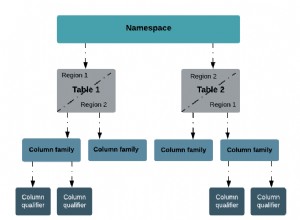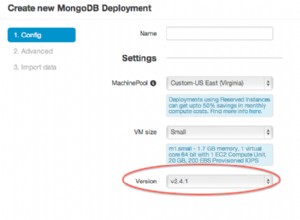Możesz zdefiniować niestandardowy ArrayValidator . Umieść następujące w app/validators/array_validator.rb :
class ArrayValidator < ActiveModel::EachValidator
def validate_each(record, attribute, values)
Array(values).each do |value|
options.each do |key, args|
validator_options = { attributes: attribute }
validator_options.merge!(args) if args.is_a?(Hash)
next if value.nil? && validator_options[:allow_nil]
next if value.blank? && validator_options[:allow_blank]
validator_class_name = "#{key.to_s.camelize}Validator"
validator_class = begin
validator_class_name.constantize
rescue NameError
"ActiveModel::Validations::#{validator_class_name}".constantize
end
validator = validator_class.new(validator_options)
validator.validate_each(record, attribute, value)
end
end
end
end
Możesz go używać w swoich modelach w ten sposób:
class User
include Mongoid::Document
field :tags, Array
validates :tags, array: { presence: true, inclusion: { in: %w{ ruby rails } }
end
Zweryfikuje każdy element z tablicy przeciwko każdemu walidator określony w array hasz.




